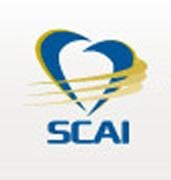
September 23, 2010 – The first consensus document for treating structural heart disease has been published by the Society for Cardiovascular Angiography and Interventions (SCAI). The core curriculum and the results of a survey of physicians and training doctors were published Tuesday in Catheterization and Cardiovascular Interventions and JACC Cardiovascular Interventions.
The curriculum, which was endorsed by the American College of Cardiology Foundation and written by interventional specialists from multiple regions, defines training and credentialing requirements along with program standards for practitioners.
Interventional treatments have evolved rapidly during the past decade, and therapies are helping more patients who previously had to undergo open-heart surgery, or who could not be treated at all. With such rapid advancement, SCAI identified a need for uniformity across training programs and specific credentials and standards for practitioners. Currently, a lack of comprehensive training programs prohibits many practitioners from treating structural heart disease, according to the SCAI survey of 107 U.S.-based interventional cardiologists.
"The primary goal of the core curriculum is to provide patients with the highest level of care and treatment available," said Carlos Ruiz, M.D., Ph.D., FSCAI, professor of pediatrics and medicine and director of the division of congenital and structural heart disease at Lenox Hill Heart and Vascular Institute of New York, and lead author of the core curriculum. "The core curriculum will serve training centers and practitioners dedicated to growing their knowledge and skill base for structural heart disease interventions and provide a forum to discuss the latest treatment advancements for structural heart disease to advance and improve patient care."
The curriculum outlines specific training recommendations and skill requirements, including:
• Superb basic catheterization skills with the ability to achieve unusual types of vascular access and manipulate various catheters, balloons and other devices.
• The ability to competently handle potential complications.
• A knowledge base and interventional skills for a variety of complex structural heart diseases, including appropriate device selection, imaging needs, stenting techniques, managing complications and acute and long-term post-procedural care.
"As structural heart disease procedures advance and become increasingly common, it is essential that practitioners acquire the right set of skills and knowledge base," said SCAI Past President Ted Feldman, M.D., FSCAI, director of cardiac catheterization at Evanston Northwestern Healthcare in Evanston, Ill., and chair of the Structural Heart Disease Council. "Patient care will benefit from those who acquire the skills and training outlined in the core curriculum document."
For more information: www.SCAI.org


 December 24, 2025
December 24, 2025 









